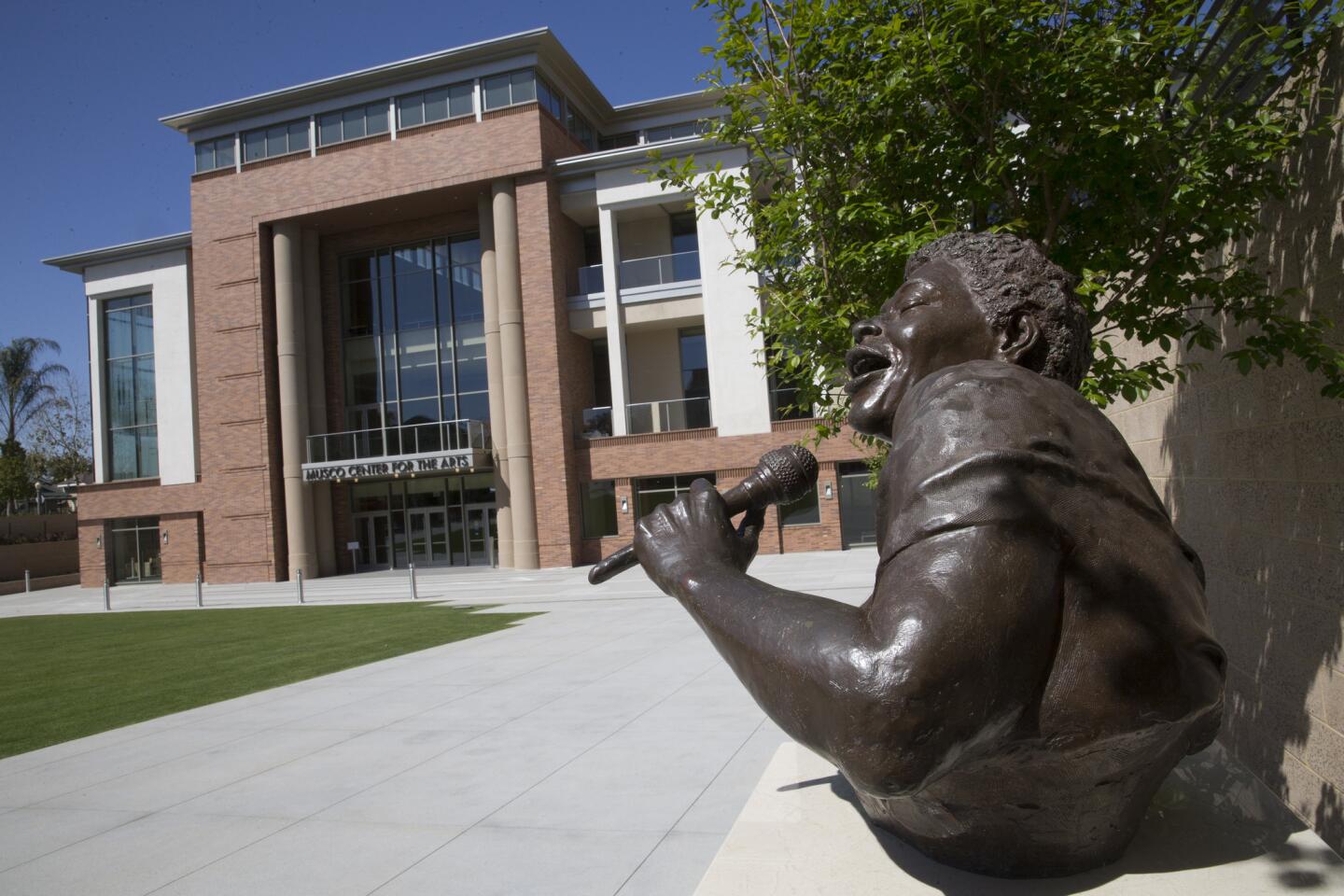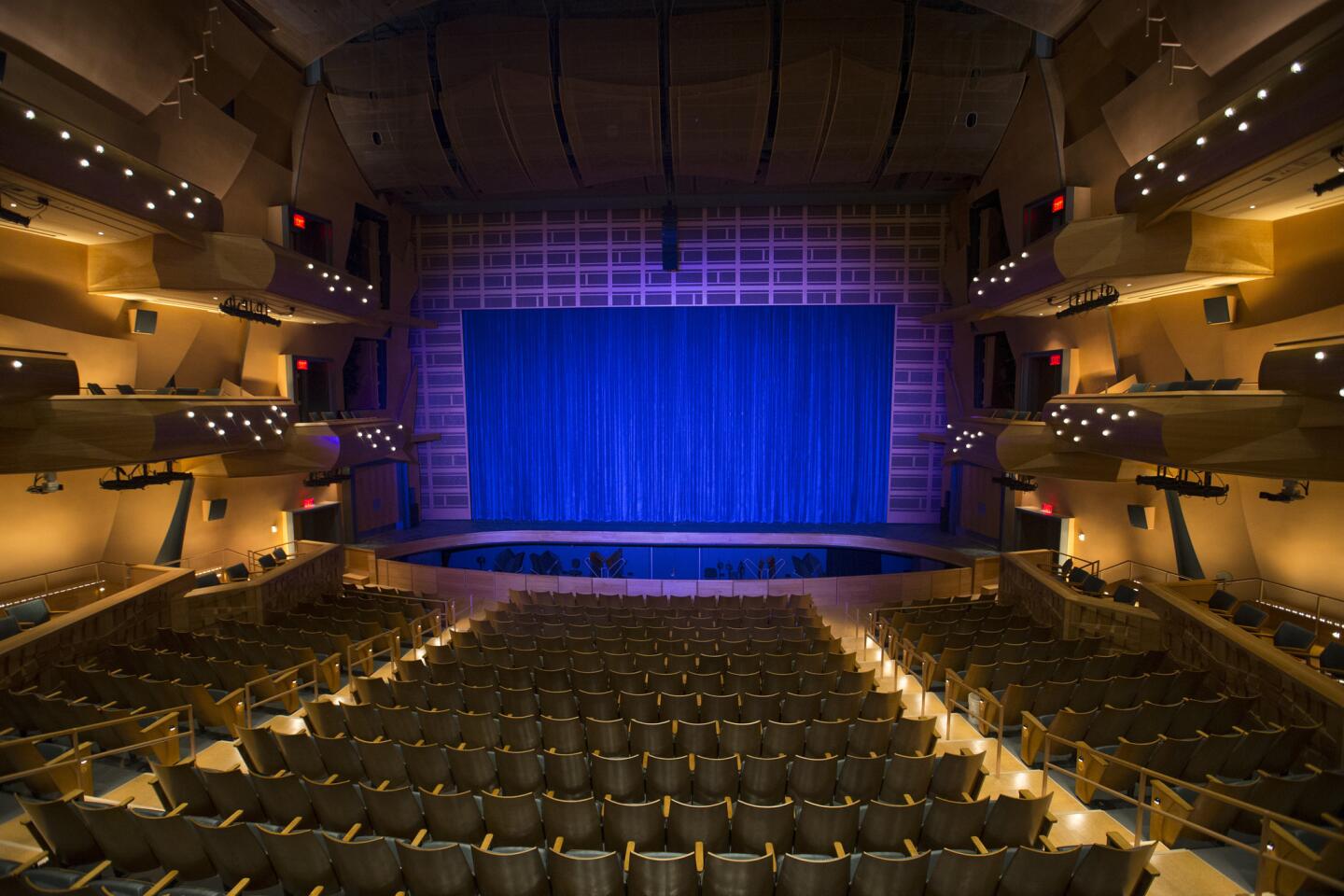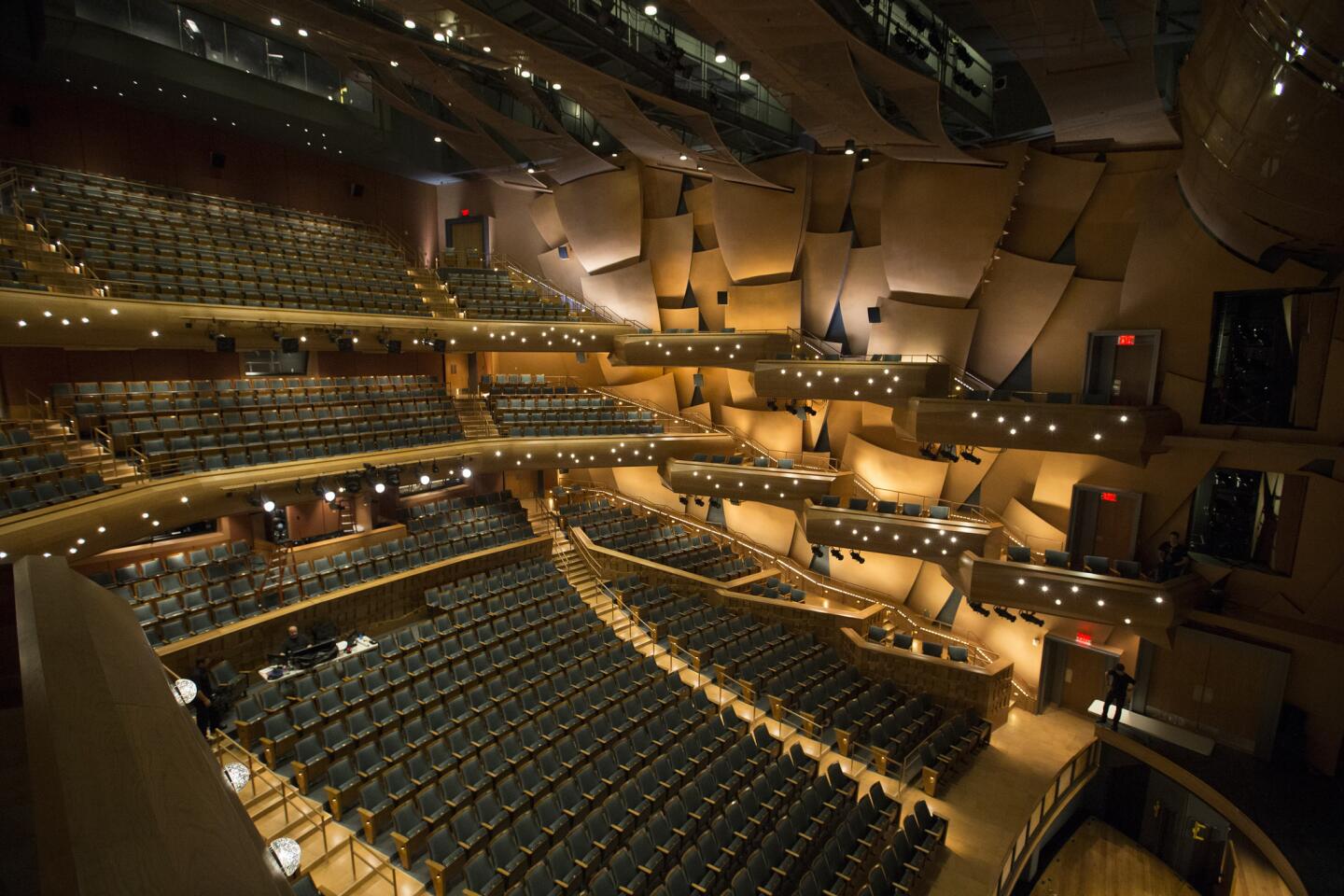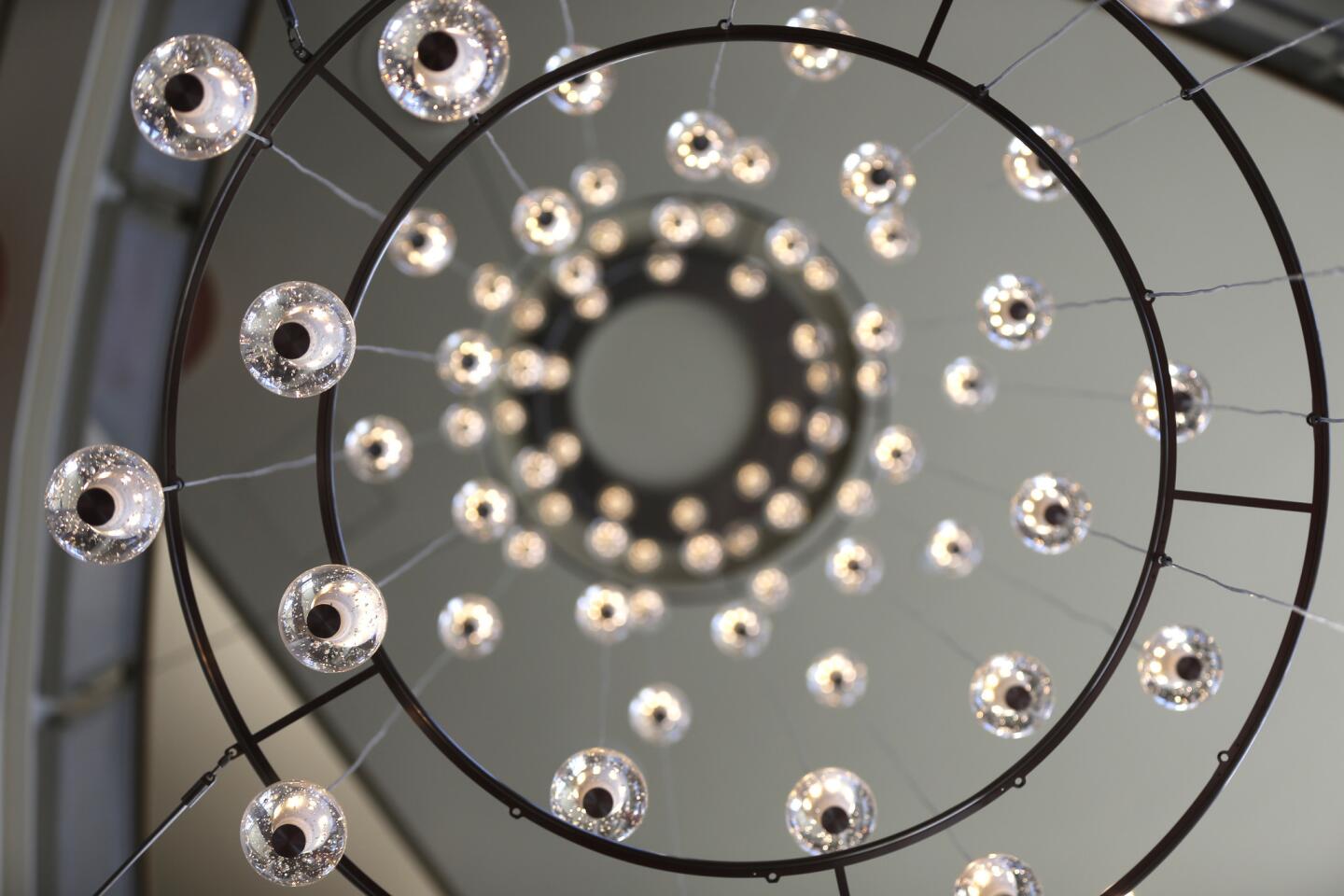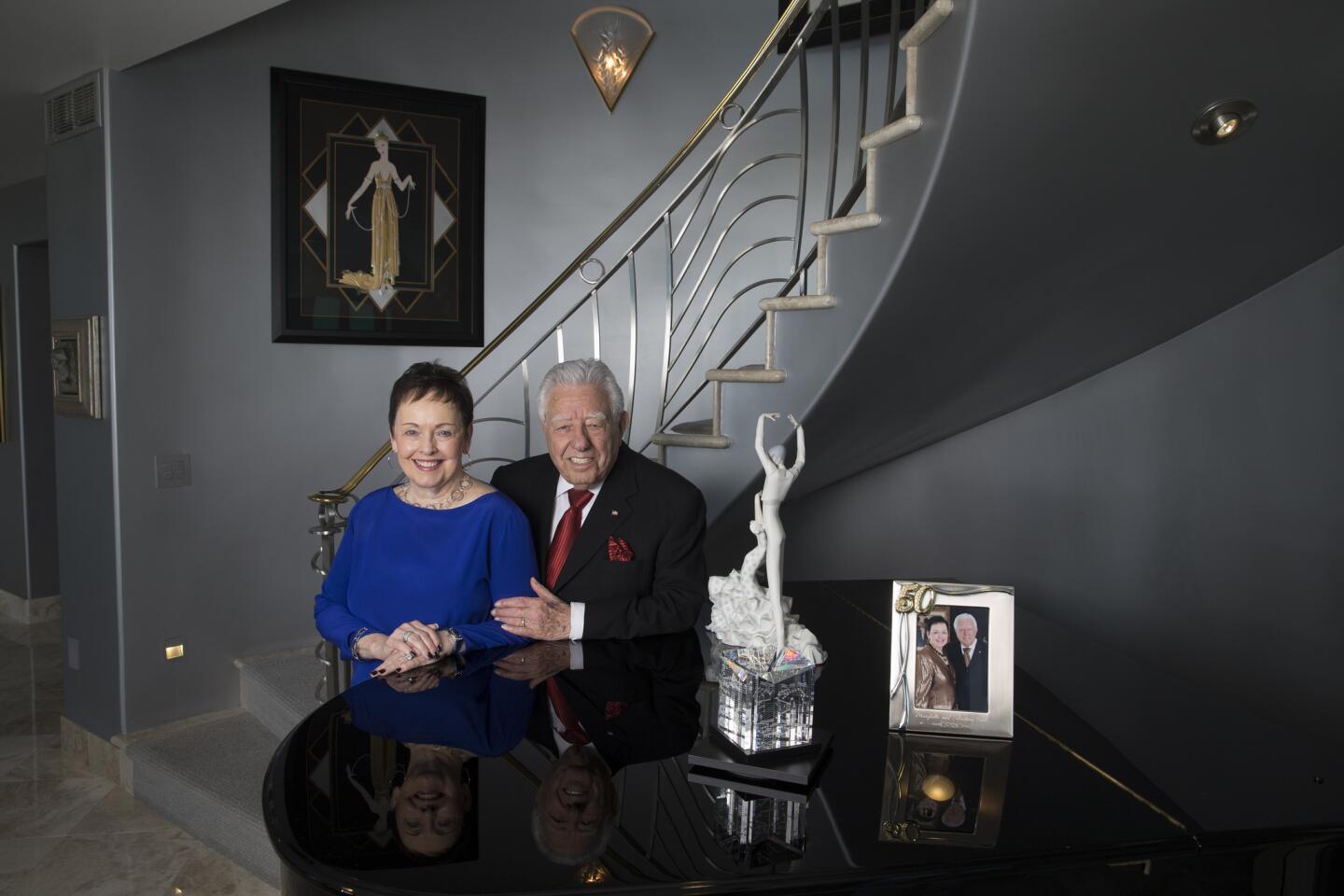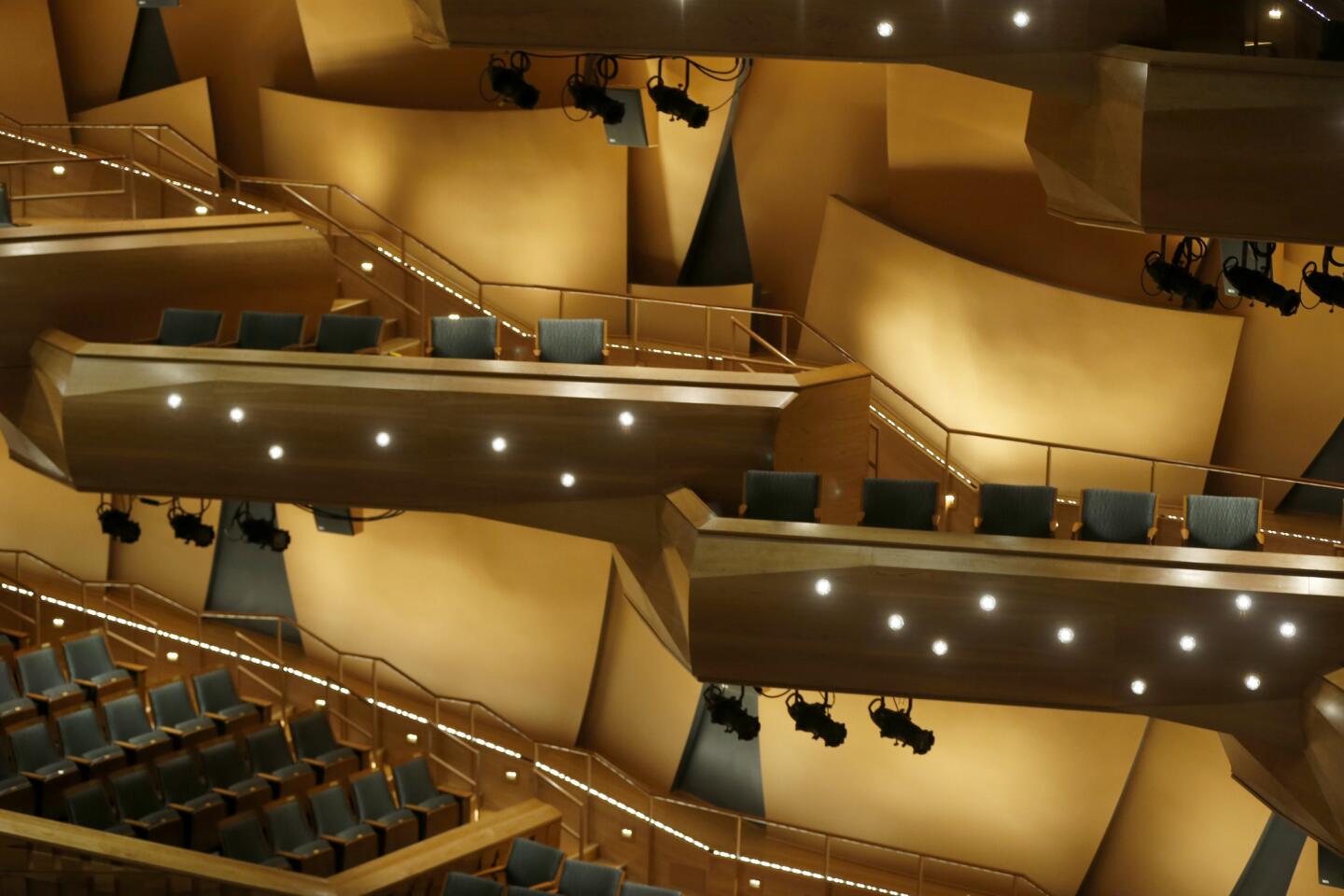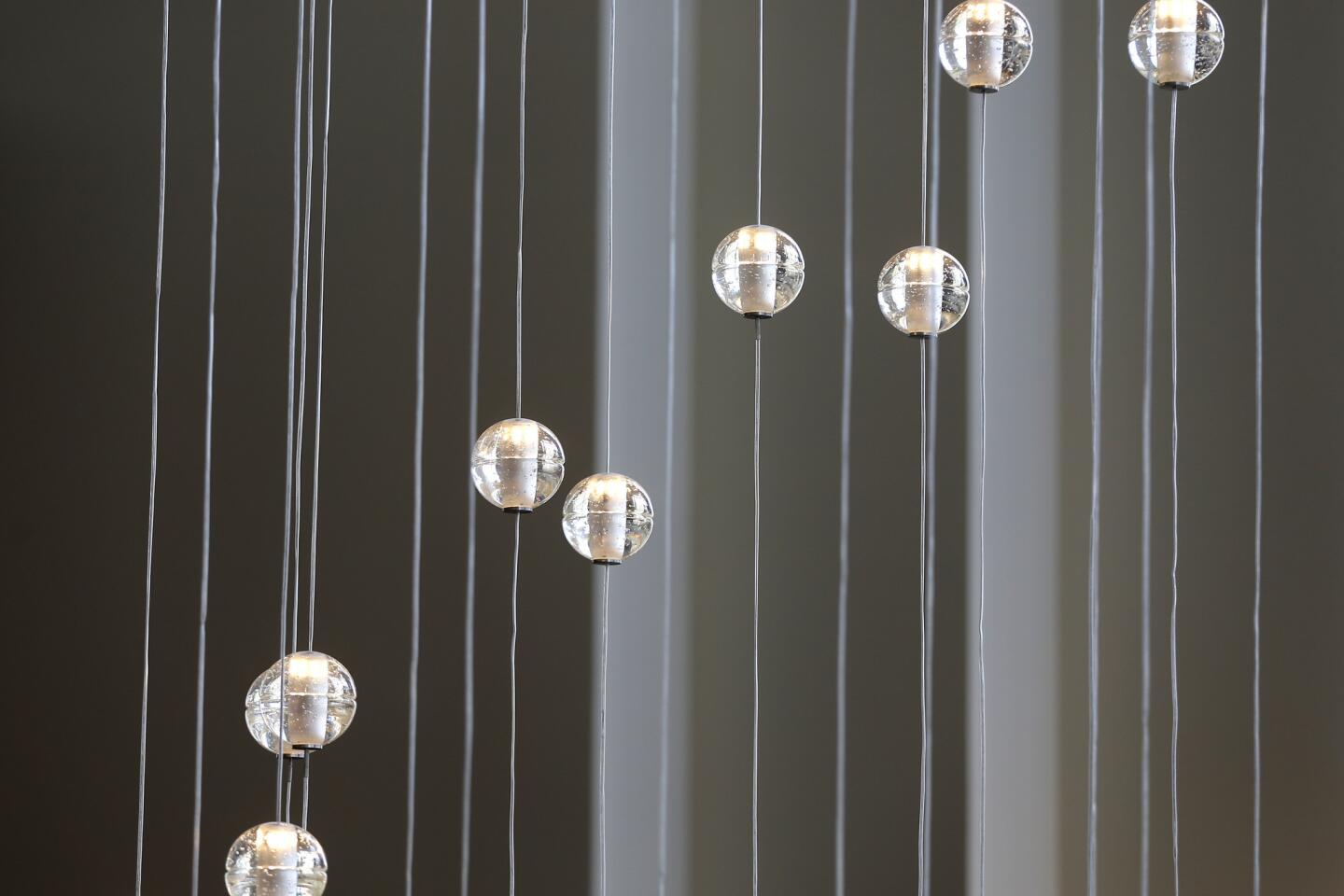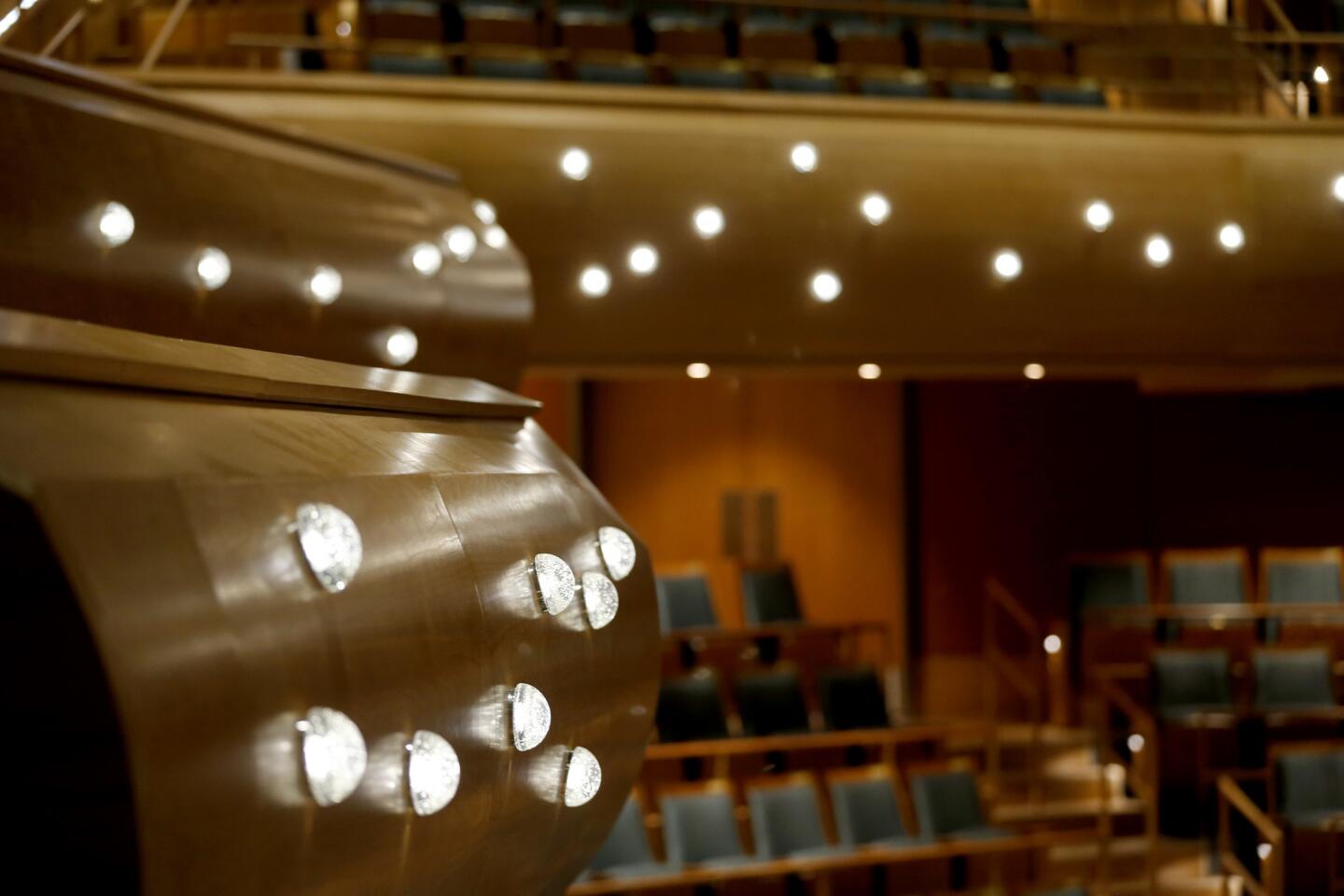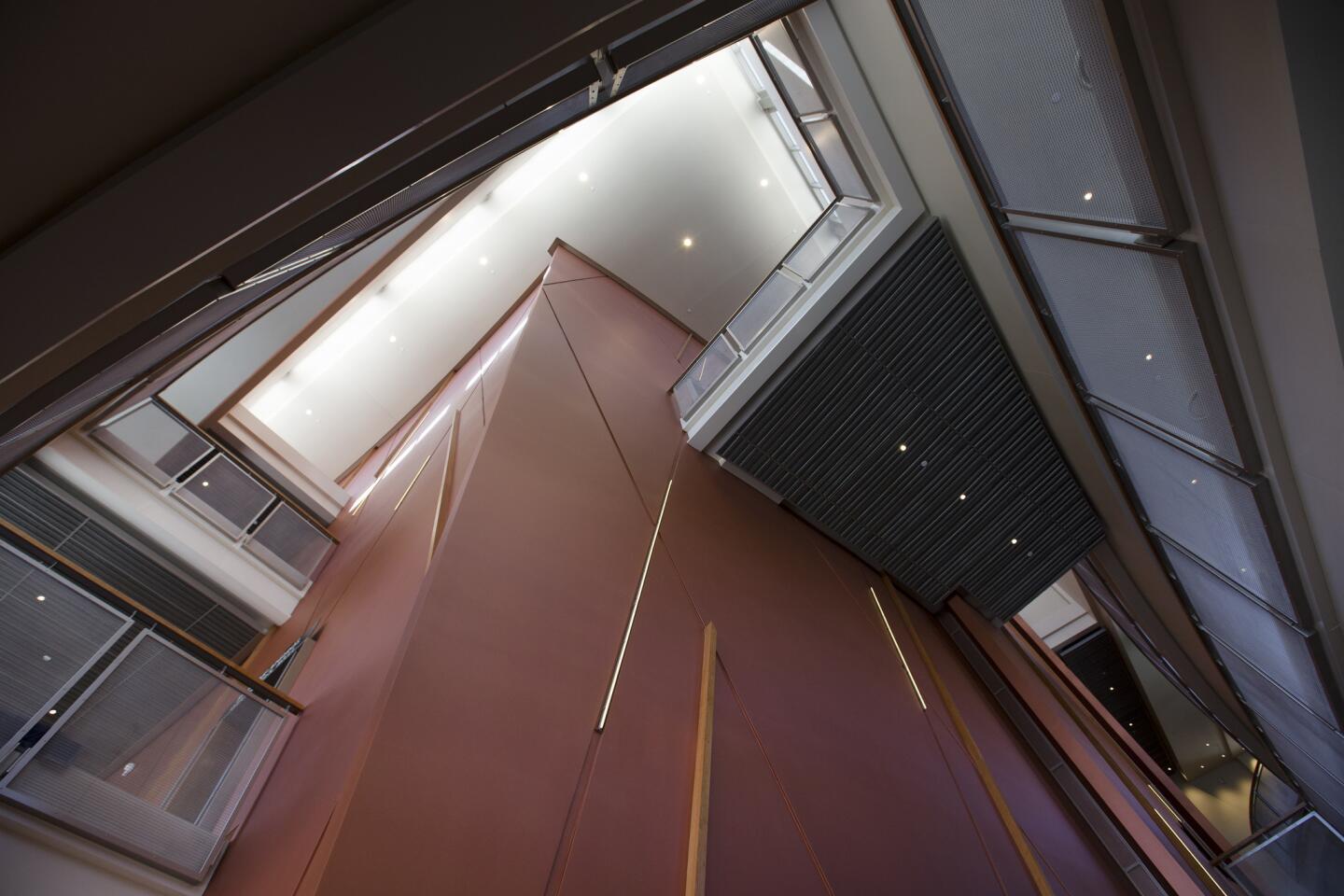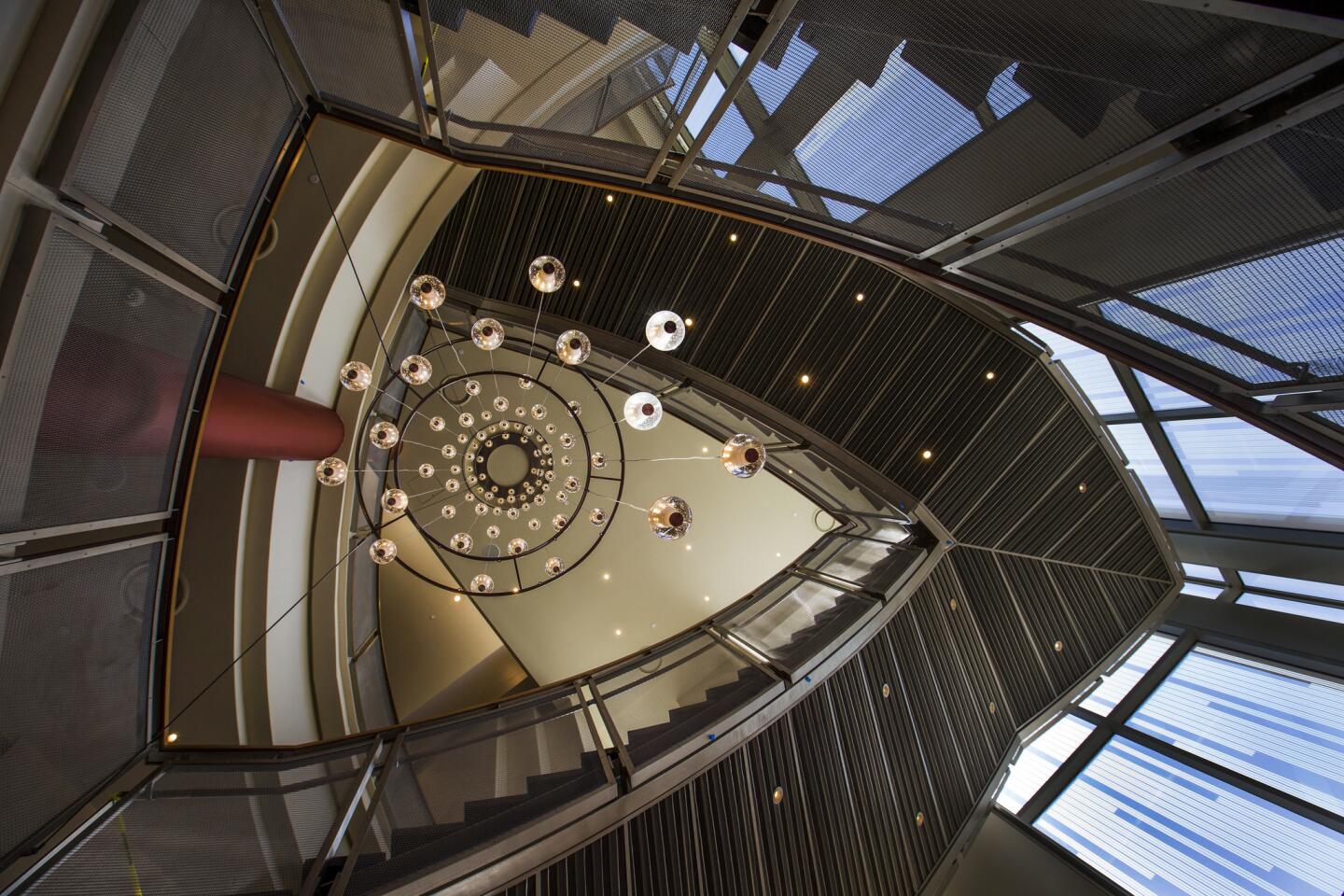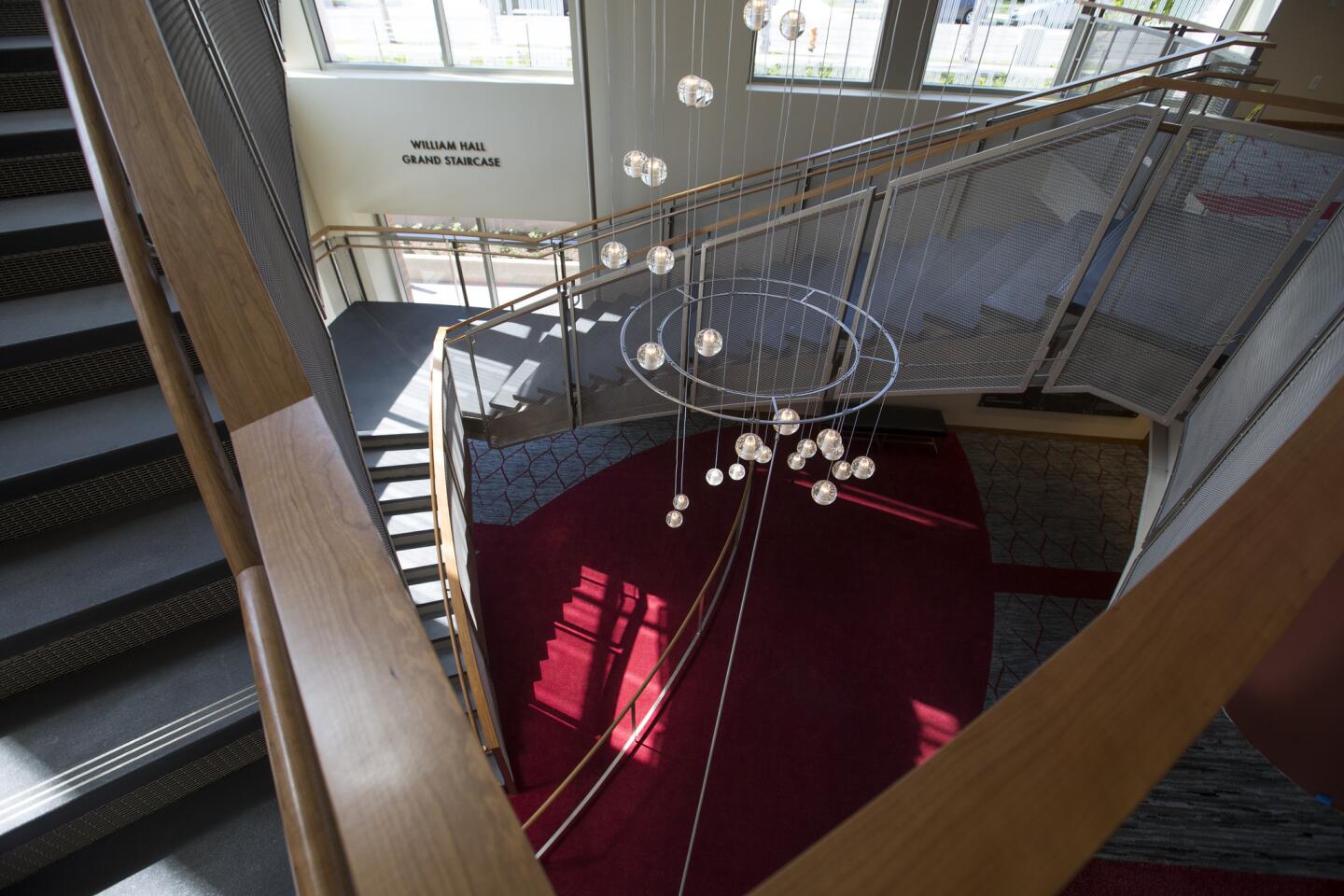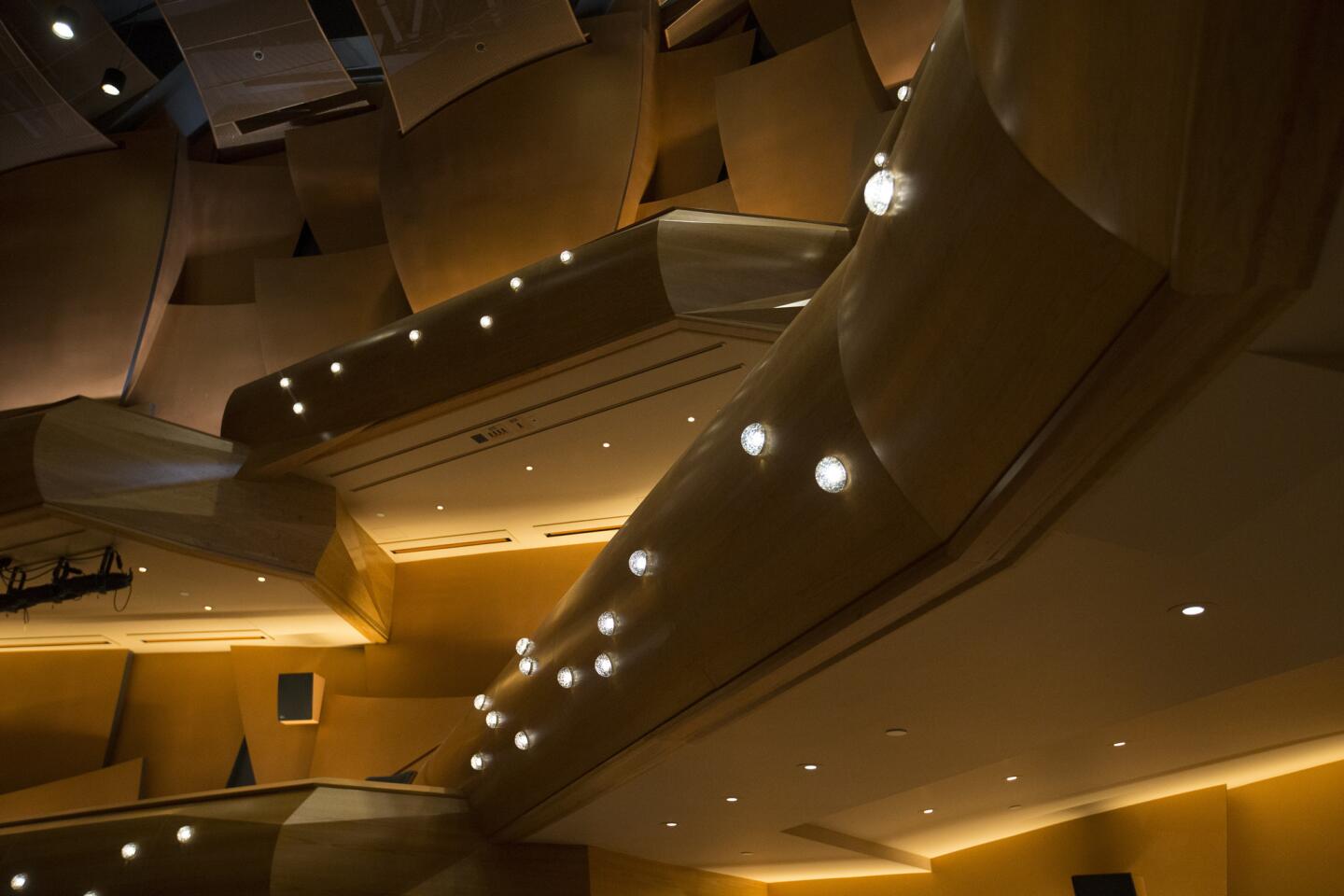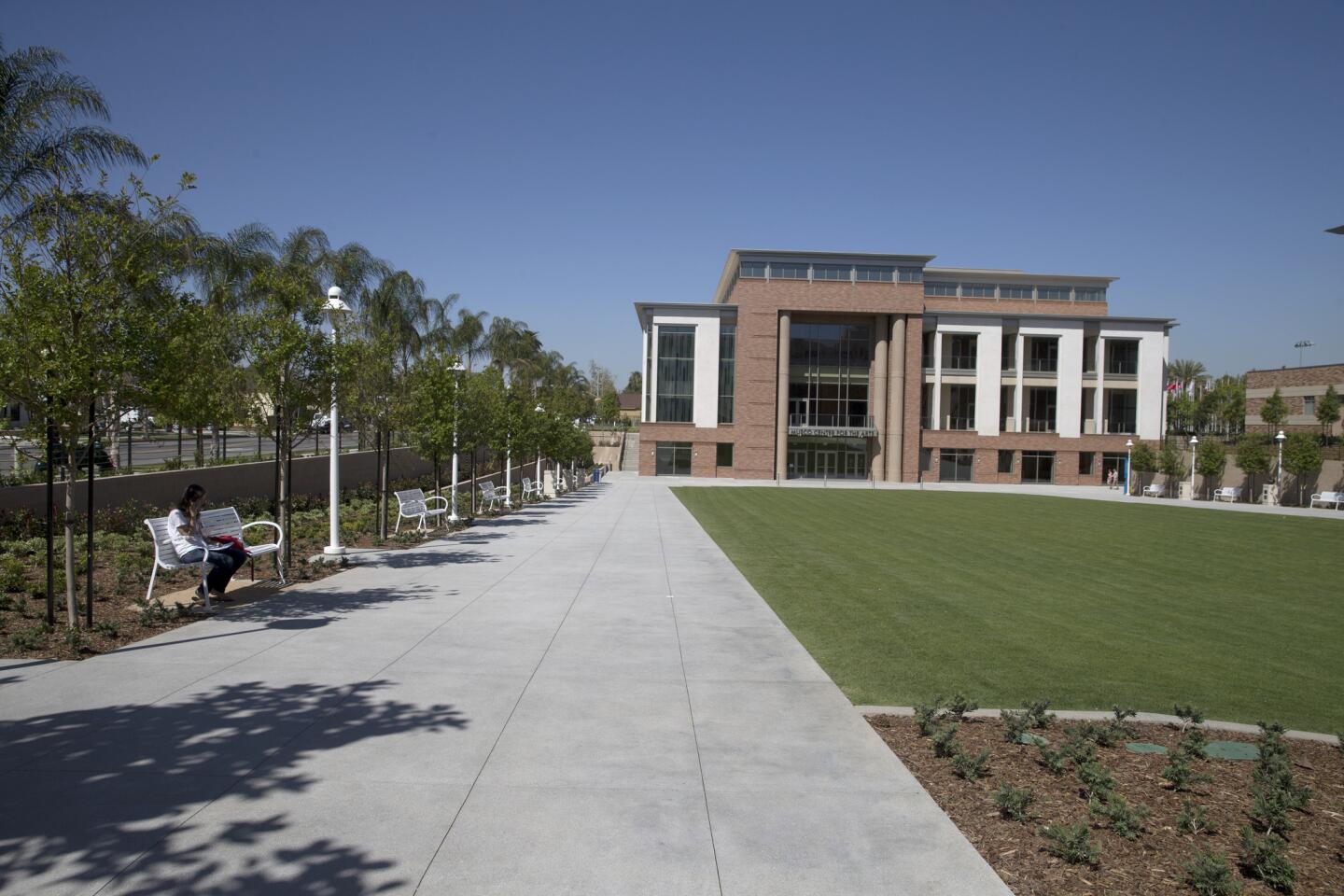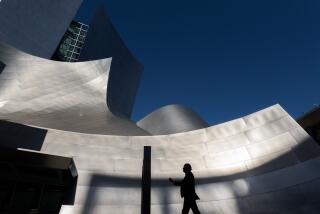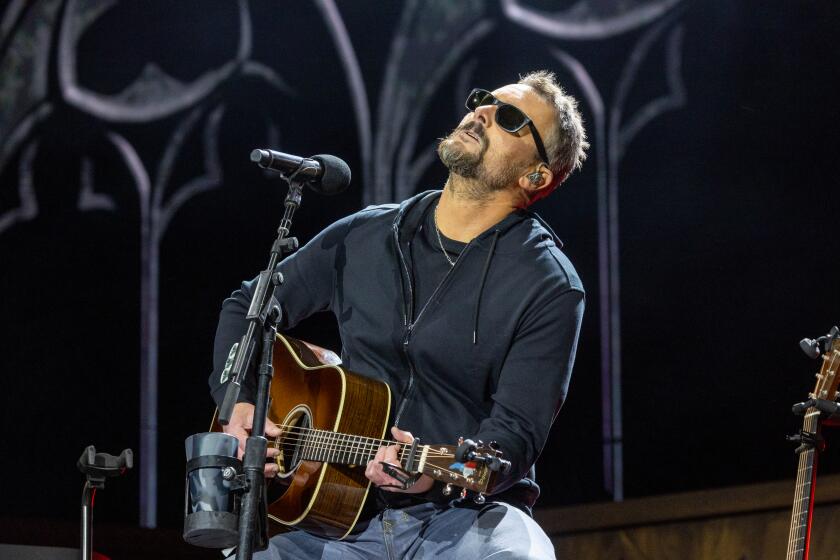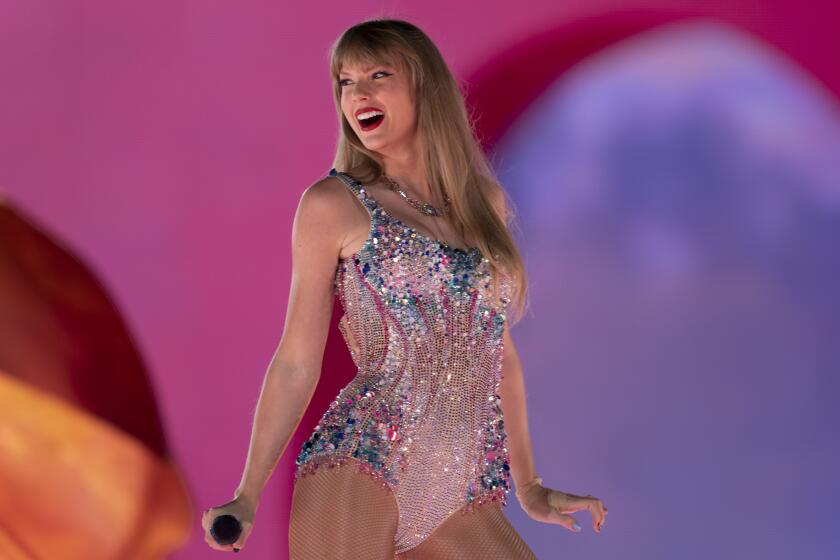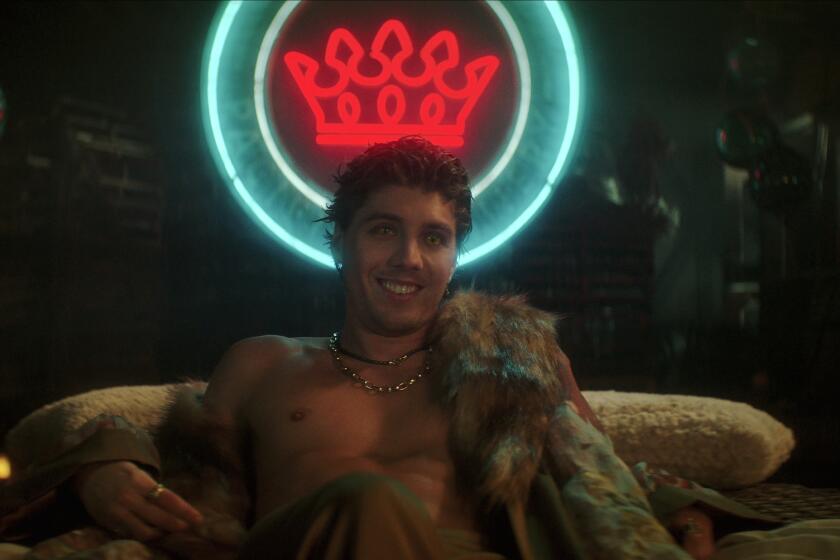Review: Musco Center’s sound decisions might make it the best opera house in the West
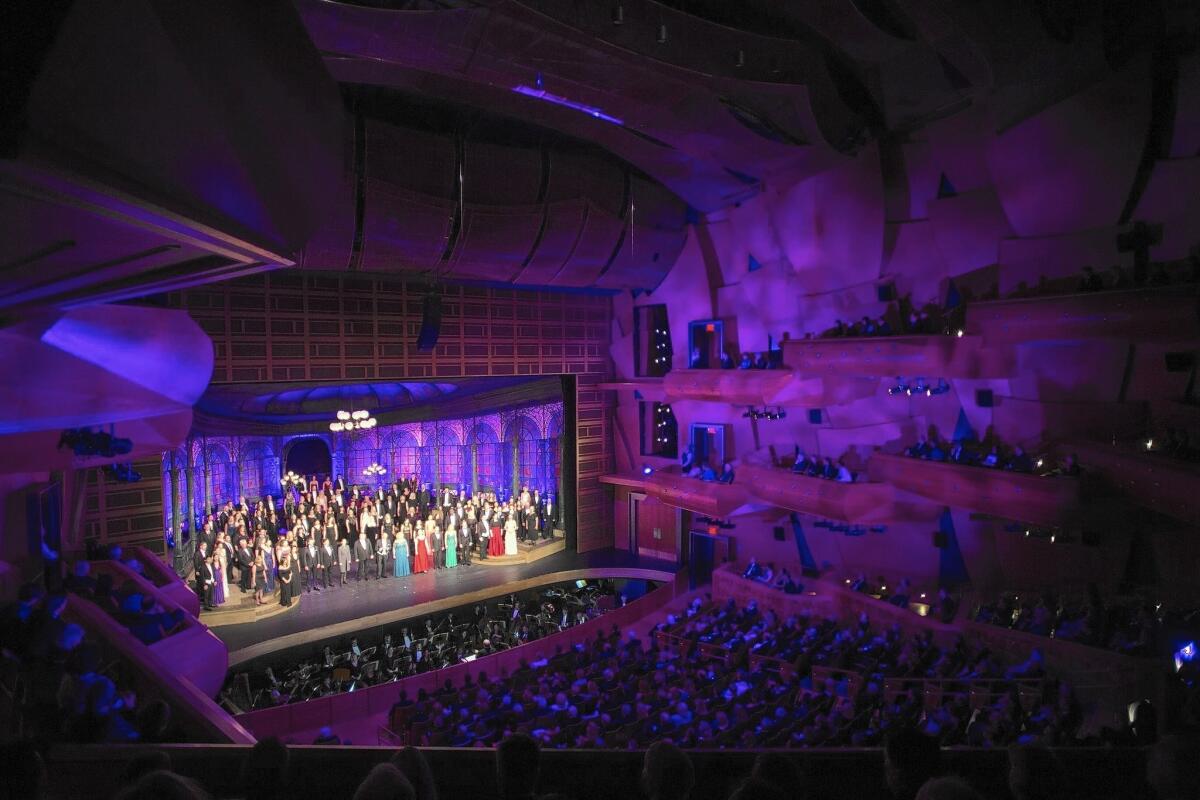
Yasuhisa Toyota has done it again.
The Japanese acoustician became an international sensation with the 2003 opening of Walt Disney Concert Hall, his first assignment outside of Asia. Since then, his firm, Nagata Acoustics, has endowed many of the most notable new concert halls in the U.S. and Europe with remarkable sonic immediacy.
Saturday — the day the touring Los Angeles Philharmonic happened to give its first performance in Paris’ year-old Philharmonie, in which Toyota had a hand — Chapman University opened what might have been a modest, multi-purpose 1,044-seat facility. Instead, thanks to Toyota, the city of Orange now houses an ideal opera house, potentially the best in the West and maybe even something more.
Architecturally, the Musco Center for the Arts makes no statement. Pfeiffer Partners Architects Inc. was evidently required to fit the new hall into the cookie-cutter collegiate architectural style of this private university’s campus. The interior is slightly more interesting, with its flowering of acoustical panels. But unlike Toyota’s trademark vineyard-style venues — where, as with Disney, the audience surrounds the stage and feels at one with the musicians — the Musco is a proscenium hall meant for concerts, opera, Broadway and spoken theater.
That is a sure recipe for acoustical compromise, and how well Musco will serve many muses will take time to know. Saturday’s opening gala, presented with much help from Los Angeles Opera, revealed only how the hall functions with an orchestra in the pit and singers on stage. A 55-ton acoustical shell has been designed for an alterative configuration, and that remains to be heard.
Now for the usual weaseling reservations. I sat in the orchestra section about two-thirds back from the stage. Maybe those in the two balconies or 16 boxes heard something different than I did (then again, the sound is typically better upstairs).
The hall has a sophisticated multimedia setup, but it is not ready. For that matter no hall is ready on opening night. Wood needs seasoning. Loudspeakers and electronic sound equipment require hundreds of hours to be broken in. Musicians must have time to learn a space, and reportedly there was little rehearsal time for this program of opera excerpts that featured the L.A. Opera orchestra in the pit, and starred Plácido Domingo, Deborah Voigt, Milena Kitic and a number of graduates from the Chapman vocal program.
Now let me weasel out of those reservations. That the Musco worked as well as it did Saturday and sounded as compelling as it did only enhances the probability of this theater’s potential for greatness.
But no theater can ever be better than what you put on stage, and opening galas typically have other agendas, namely raising money through superstar power, along with serving institution and donor needs. Chapman was no exception.
Sebastian P. Musco — who along with his wife, Marybelle, paid nearly half of the hall’s $82-million price tag — is a member of the L.A. Opera board’s executive committee, as is Milan Panic, another major donor to the hall. The L.A. Opera connection is thus strong. Kitic, the excellent Suzuki in the company’s current production of “Madam Butterfly,” happens to be Panic’s wife (she is also a Chapman artist-in-residence). Actor Alex David, the master-of-ceremonies and a Chapman grad, introduced himself as Musco’s grandson.
The Musco stage is large (larger than the Dorothy Chandler Pavilion, which seats three times as many as Musco), and so is the pit. A set from an L.A. Opera production of Puccini’s “La Rondine” looked better here than it did in the Pavilion. The orchestra, conducted by John DeMain, thrillingly blasted out of the pit for the overture to Leonard Bernstein’s “Candide.” So that’s what the band sounds like!
Actually, the orchestra, used to overcompensating for the Chandler’s dampening acoustics, could be too enthusiastically loud. But it soon settled into a comfortable relationship with the singers on stage, all of whom had an engaging vocal presence, whether upstage or down. The problem with that, of course, is that Toyota gives them nowhere to hide vocally.
Selections were opera’s bonbons. As if taking a cue from Domingo, who threw himself into “Di Provenza il Mar” from Verdi’s “La Traviata” and to “Granada,” everyone treated this as a night for grandness rather than intimacy. Voigt seemed as uncomfortable in Wagner as in Gershwin. Kitic’s “O Don Fatale” (from Verdi’s “Don Carlo”) and Stacy Tappan’s “Glitter and Be Gay” (from “Candide”) might have delivered more with less.
The young grads worked hard as well, and particularly appealing were Deborah Domanski and Efrain Solis. The evening ended with “Make Our Garden Grow,” also from “Candide” and sung by the full ensemble and Chapman Singers and Alumni Choir. Stage director Trevor Ross kept things pretty basic, as did DeMain with his efficient conducting.
But that was enough to know. Each voice was distinct. Close your eyes and you could still tell exactly where on stage each singer was. Amplification was tried out for Weston Olson’s number from “Les Misèrables,” and artificiality wasn’t a problem, at least, at lower volumes. This is a hall where everyone will have to learn not to push.
Now what? Odds are that such a hall will work well with the shell. Spoken theater, pop and all the rest are harder to predict.
But let this also be a regular house for opera. Orange County no longer has an opera company and needs one. Here too is the perfect venue for an American opera festival. Orange, of all places, is suddenly perched to find itself on the opera map the way places like Glimmerglass and Glyndebourne have.
More to Read
The biggest entertainment stories
Get our big stories about Hollywood, film, television, music, arts, culture and more right in your inbox as soon as they publish.
You may occasionally receive promotional content from the Los Angeles Times.
